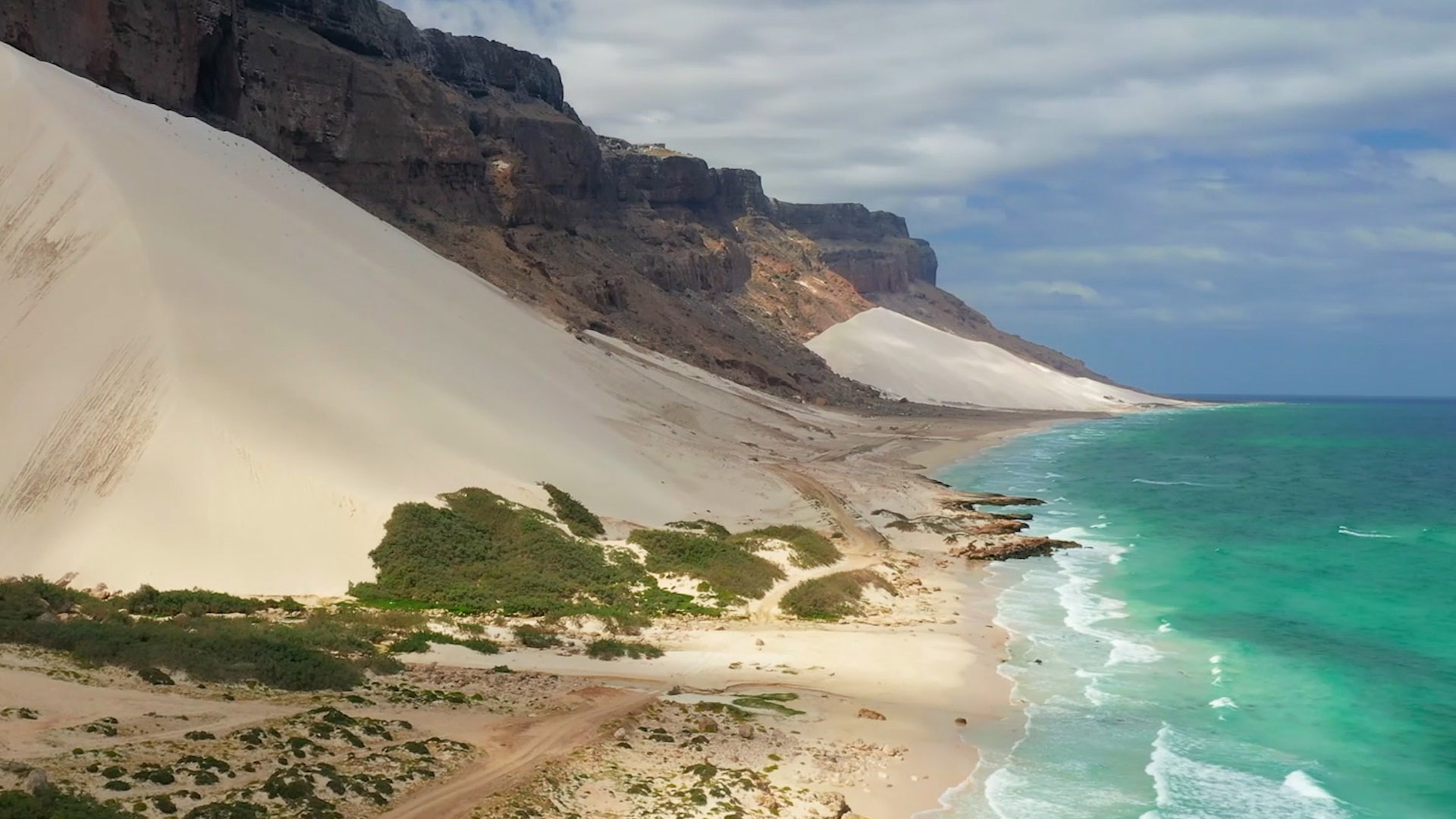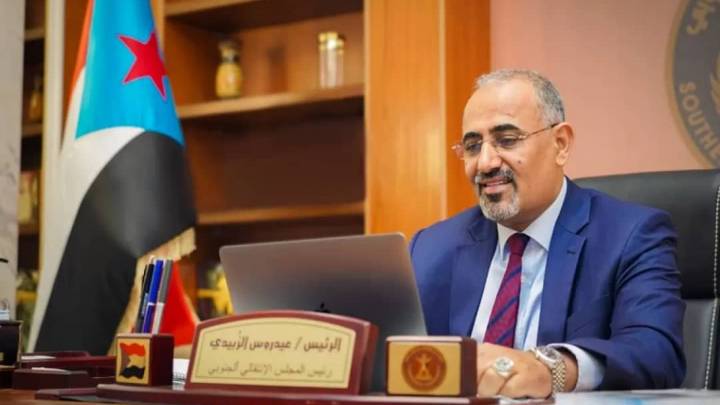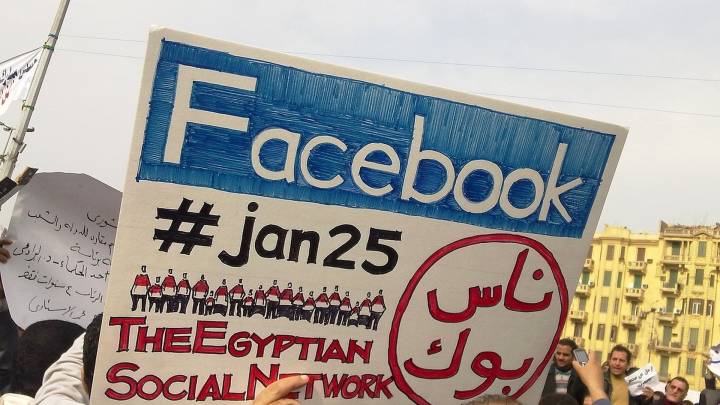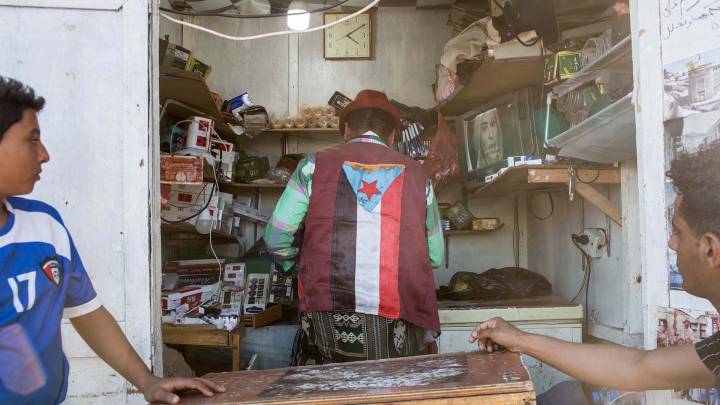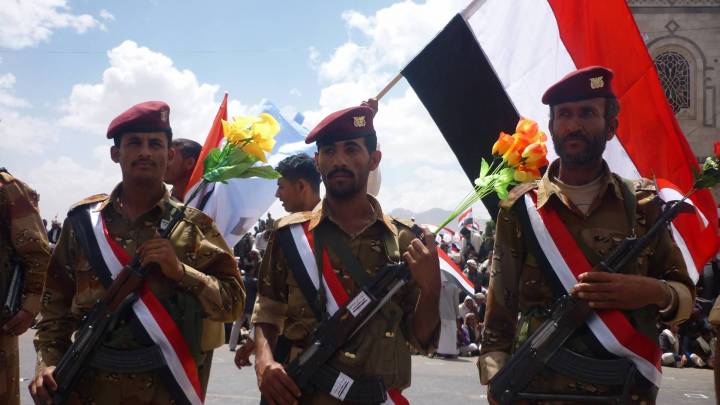Every actor engaged in the war in Yemen has deployed extensive networks of media outlets and journalists with the principal intent to shape public perceptions of the enemy, as the battle of narratives on the island of Socotra shows
As the civil war in Yemen enters its seventh year, political actors are vying for control of territory, deploying instruments of war beyond the battlefield. Media wars have emerged as effective tools for deflecting attention as much as to demonize rivals, local or foreign. In southern Yemen, the rivalry between the Sunni Islamist party al-Islah, a Muslim Brotherhood affiliate, and Hirak, the pro-secessionist southern movement, extends from southern views of Islah as a northern extremist party, manifesting in direct armed clashes throughout southern provinces and across a network of media outlets often employing western analysts to perpetuate unfounded accusations against rivals.
As Islah affiliates in al-Baydha, Mareb and Taiz lose ground to the Sana’a-based Houthi rebels, they focused their attention on southern provinces, where Hirak elements continue to resist an expansion of authority by Islah affiliates. This rivalry has led pro-Islah media outlets, like Bilqis TV , to engage in a media war focused not on demonizing southern Yemeni actors, but rather on attacking foreign allies of actors like the Southern Transitional Council (STC).
For nearly two years now, Islah-affiliated media networks have perpetuated the narrative of foreign occupation, by claiming the UAE has established military bases on the Island of Mayyun near Bab al-Mandab and on Socotra Island in the Gulf of Aden. While Saudi Arabia, leader of the ՙArab Coalition to Restore Legitimacy in Yemen՚, confirmed the air base on Mayyun island is operated by Yemeni troops and discredited claims of foreign occupation, attention quickly refocused on Socotra Island.
Occupation and Defense
The rumors of foreign troops occupying Socotra escalated when pro-STC elements expelled governor Ramzi Mahroos, accused of plotting with Islah. The conflict between the governor and security officials on the island fueled accusations against the UAE and Saudi Arabia of ‘turning a blind eye’ on the situation on Socotra.
Media outlets affiliated with Islah launched a coordinated campaign accusing the UAE of aiding the pro-STC security elements in order to establish a military base on the island. Major-General Abdullah al-Socotri, commander of the First Infantry Brigade in Socotra, recently confirmed that “there is no presence for any Arab or foreign troops in Socotra except for the Saudi force on duty which has been deployed on the island upon request from President Abdu Rabu Mansour Hadi.”
Part of this campaign extends to mainstream western media outlets hosting interviews with western geopolitical analysts whose speculation is based on perceived geopolitical ambitions by Yemen’s neighbors. Some of these media outlets have focused their reporting on such topics only in their Arabic-language publications, leading to believe these outlets are adopting narratives perpetuated by Islah affiliates without actually reporting from the ground.
Sheikh Ghanim Saeed, a prominent tribal leader in Socotra, said he has never seen any military presence from the UAE, adding that “the UAE does have charity (organizations) working…to help the Socotri people.” Major-General Abdullah al-Socotri added that “such rumors aren՚t new, they are circulated by media outlets of the Muslim Brotherhood group and its arm in Yemen [the Islah party] and they have been refuted by many foreign media teams who visited the archipelago recently and investigated these allegations by themselves.”
The animosity that grows toward the Islah party along southern provinces like Socotra extends from perceptions among the people that Islah looks for territory to control as they lose ground against Houthis in northern provinces like al-Baydha, Mareb and Taiz.
Territorial loss escalates media wars
Events over the past six-and-a-half years show a correlation between loss of territory by a particular party and escalation between rivals along new fronts. The case of the more isolated island of Socotra followed rising tensions in the eastern province of al-Mahra, between Saudi Arabia and local tribes. The island’s relative stability was disrupted as local officials saw governor Mahroos growing closer to the Islah party and the elite around president Hadi.
While the conflict often pins pro-secessionists against supporters of the Republican government, those who are pro-unity, the conflict that had led to Mahroos’ expulsion was based more on perceptions of an imminent influx of pro-Islah elements on the archipelago of Socotra. In addition, people like Zaid Salem, a lawyer at the Office of Socotra Legal Affairs, express their frustration with the government of Yemen who “in decades has failed to provide Socotra with a third of the humanitarian support provided by the UAE in [the past] five years.” Zaid is also among those who accuse Islah of dominating the current government hosted in Riyadh. “The relationship between Socotra and the UAE wasn’t born yesterday or the day before, the UAE has been standing by the Socotri people for more than five decades”, said Shaykh Saeed.
The escalation has pinned al-Islah against southern elements and the UAE, with media outlets focusing mostly on the UAE. Islah has been careful to not antagonize southerners and political groups like the STC because this could expand support for Hirak and the STC among the general southern population. Especially now that the STC is part of president Hadi’s government, it is easier, and speculatively more advantageous to focus on a foreign power painted as an occupying force. Local officials and residents have dismissed rumors advanced by various media networks and insist “the archipelago is open for any visitors, anybody can visit Socotra and investigate the fake reports and the baseless rumors regarding the presence of the UAE in Socotra,” Mr Salem said, supported by Shaykh Ghanim Saeed, in rebuke to recent media reports claiming otherwise.
